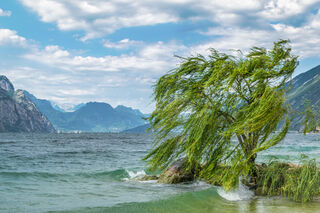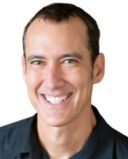Wisdom
What's the Key to Improving Our Lives?
Growth is one purpose of our existence, but how do we achieve this growth?
Posted October 30, 2020
Key points
- We strive to be successful in life, and certain strategies and skills can help us achieve this success.
- Flexibility is one of the greatest keys to success in life.
- Rigidity is the antithesis of flexibility, and rigidity in its various forms (extremism, dualism) contributes to suffering.
- The world is changing faster than ever, so it is critical that we "up" our flexibility game.
Disclaimer: I don't claim that what I say is totally "true," because the truth is elusive in this complicated world. Rather, I'm offering some ideas to help perceive the world and ourselves in a manner that opens pathways for change and growth.
“Thus whoever is stiff and inflexible is a disciple of death. Whoever is soft and yielding is a disciple of life.” — Lao-tzu, from The Tao Te Ching
“Hold on loosely. But don’t let go. If you cling too tightly, you’re gonna lose control.” — .38 Special, from the song “Hold on Loosely”

Lao-tzu and the southern rock band .38 Special are onto something. They both offer profound advice about how we should live our lives. It is this key bit of wisdom: Our effectiveness in life requires flexibility.
This idea sounds so simple and commonsensical that we are inclined to dismiss it without further consideration. However, I'm here to sell you on the idea that there is a vast, untapped potential hidden within this deceptively simple concept. Given the increasing madness we are seeing in this world, we need to navigate these challenges more skillfully or we will pay the price.
Psychologist, Heal Thyself
As I reflect upon my life, I've caused a lot of unnecessary suffering for myself and others because of my inflexibility. I hate to admit this but for much of my life, I've been one of those people who had to be right and convince others that they were wrong. I cringe as I recall the many times throughout my youth in which I argued with friends over trivial matters as if my life depended on it. Instead of "going with the flow," I would plant my flag and argue until things turned from unproductive to ugly (never to blows though...except that one time many, many years ago....ahem).
Armed with my strong convictions, I tried to help others "see the light" as well as the errors of their ways. Early on, this frequently involved religion (a long story, that one) but expanded to involve psychology, philosophy, and politics. At other times, I was just trying to win an argument with friends, colleagues, or my wife over matters large and small. I was often more focused on being right than being effective.
Thankfully, I did soften my dogmatic and rigid ways of thinking over the years. It's an ongoing process! There was no single turning point, but I eventually came to realize that I had changed my views on many topics over the years. If I had been wrong when I was arguing that I was right in the past, doesn't that mean I should not have argued about it in the first place? Doesn't it also mean that there are things that I think I'm right about now that I won't believe, or believe as much, later on? Shouldn't I have greater humility and greater tolerance of others' views if I have changed my views about so many topics over the years?
“When I was a boy of fourteen, my father was so ignorant I could hardly stand to have the old man around. But when I got to be twenty-one, I was astonished at how much he had learned in seven years.” — Quote of unknown origin often attributed to Mark Twain
"The only true wisdom is in knowing you know nothing.” — Socrates
Although I became more flexible in much of my thinking with age, I would still resort to either/or, dichotomous thinking more often than I'd like to admit. As a participant in a theological discussion group in my early 30s, I frequently slipped into either/or thinking in my views.
The de facto leader of our informal group was an extremely wise Episcopal priest by the name of Greg Rickel (now the Bishop of Olympia, Washington). He would gently point out some of my rigid thinking and offer a more expansive, nuanced "both/and" way of understanding things. "I think this might be viewed more in terms of a both/and than an either/or," Greg would often say. There's something to this "both/and" way of thinking that deeply resonated with me at that time and does so now more than ever.
The Insidious Allure of Dualism in a Complicated World
I didn't have a word for it during my youth, but I often viewed the world through the lens of dualism. Dualism, as the name implies, is about thinking of the world in dichotomous, either/or, all-or-nothing terms. There is no middle ground in dualism: Black or white, good or bad, right or wrong, good or evil, light or dark, mind or body, male or female, nature or nurture, self or other, for or against, liberal or conservative, Democrat or Republican, heaven or hell...dualism or nondualism (DOH!). It’s either one or the other. From this perspective, me trying to be right and viewing others who disagreed with me as wrong was a manifestation of dualism.
There is an inherent allure to being right. We long for certainty in this complicated, rapidly-changing world. Uncertainty is often scary because it could mean our survival is threatened. Evolutionarily, we are fundamentally driven by the duality of survival is good and death is bad. Thus, our ancestors needed to separate friend from foe, danger from safety, and healthy from unhealthy to survive.
Paradoxically, although change is often scary, our evolution depends upon change. Adaptation, which is a type of change, has facilitated our survival and evolution as a species. Yet our ancestors were unconsciously driven to impose order and predictability in a challenging and often chaotic world. This necessitated the evolution of biases and mental shortcuts so that we could make quick, decisive choices. Fight or flight. Approach or avoid. These were life or death decisions. Hesitation and uncertainty could mean death. The unknown and unpredictable were existential threats. We were compelled to reduce uncertainty to both reduce our anxiety and enhance our chances of survival.
As discussed in my previous blog post, we didn't necessarily need to know what was "true" in our world. We needed to survive. Thus, our fitness (i.e., continued survival) was more important than reality. From this point of view, certainty at the expense of reality to enhance survival could be the birth of dualism.
What's the Problem Here?
Our evolutionary ancestors were flexible enough in their thinking and behavior in order to survive and thrive. After all, if we weren't adaptive enough, we wouldn't be here today! However, our modern world is orders of magnitude more complex than the world of our hunter-gatherer ancestors. Imposing rigid, dualistic thinking on an extremely complicated and dynamic world is causing a lot of unnecessary suffering on both individual and societal levels. We are experiencing the pains of a profound evolutionary mismatch because we are not being flexible enough for the demands of this rapidly-changing world. We need to level up our flexibility game or we will pay the price. That is what I will be exploring in a series of posts on this important topic, and I hope you will join me!




